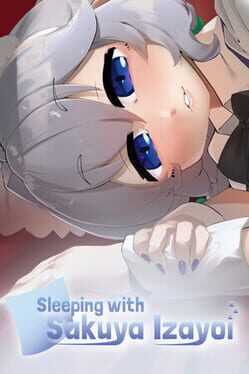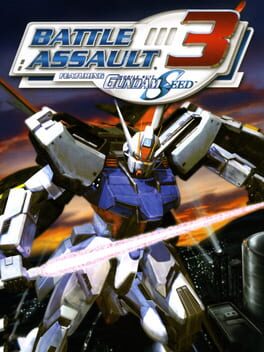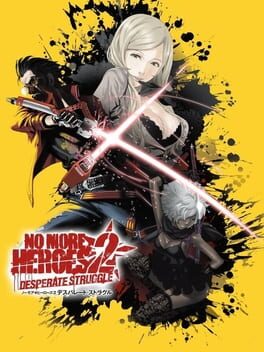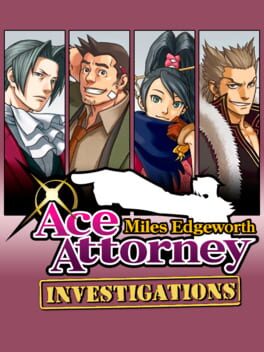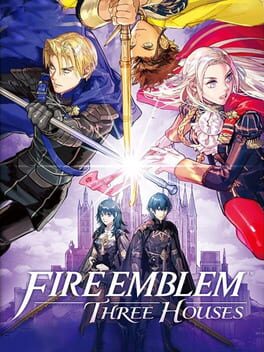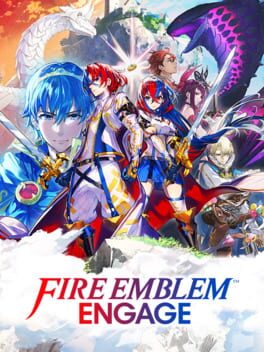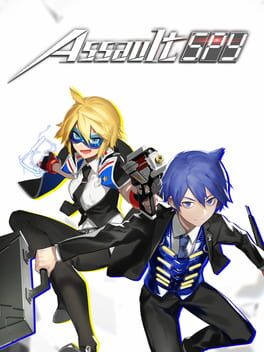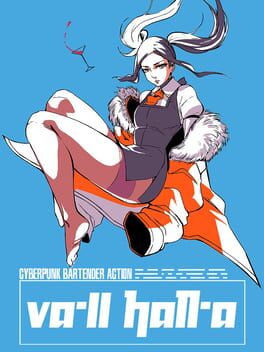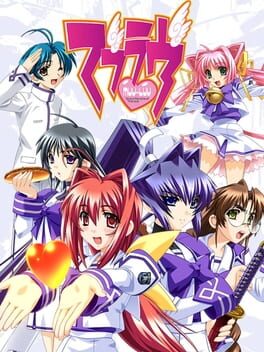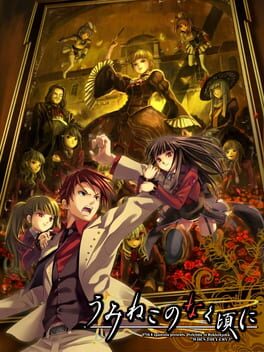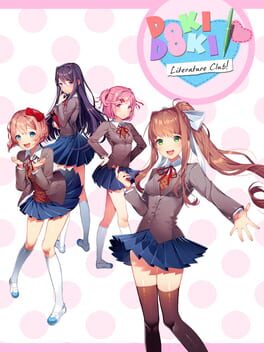wingupingu
“he’d love to spend the night in zion / he’s been a long while in babylon / he’d like a lover’s wings to fly on / to a tropic isle of avalon” - digital man, rush
dense, layered, and easy to get lost in all the same as its island centerpiece, flower sun and rain endures as personally-tailored perfection in a video game.
some years ago when i was working my way through kill the past, a good friend of mine advised me to not bother with the completely optional and not at all mandatory lost & found puzzles, as “they suck and they ruin the pacing of the game”. as a matter of pride i simply decided to not heed that advice and go through the game solving as many of the lost & found puzzles as i possibly could. in doing so i’ve made the playthrough likely much longer and more drawn out than it should have been, but it’s only until as of writing this in 2023 that i’ve realized that doing these puzzles actually held some value to me.
flower sun and rain is a game of multifaceted allegory and metaphor, where no ‘truth’ is singular (despite what sumio initially says) and just about any way of reading into it is a valid reading. to me, flower sun and rain is a metaphor about a man unwilling to acknowledge the past and move on to the future; a man eternally stuck in the present. the titular hotel claims its stake on being a paradise to forget about time in, and like a moth to a flame, sumio does as much as he can to waste away in paradise for as long as he possibly can. he lets himself get distracted with the denizens and their issues, letting paradise pull him deeper into itself so sumio doesn’t have to think about the airport and everything outside of this paradise. 25th ward puts a wrenchingly satisfying end to this thread as his life outside of paradise has become completely void of enjoyment. in the end he lets paradise subsume him, never to move on again.
paradise as an idea is something i had touched upon earlier in my thoughts on kaizen game works’ paradise killer, which for anyone who’s played a decent number of suda51 games, can very much see the unabashed ktp cribbing it proudly flaunts. it is rooted in a need to escape human problems ironically caused by humans and the societies they’ve built up. in building these paradises, it comes down to exploitation of resources and people to cultivate these getaways and romanticizing a world fundamentally incompatible with the systems that even lets a vacation spot like this exist in the first place. vacation spots like the flower sun and rain hotel are inextricably linked to colonial structures thriving off of that exploitation. this brings flower sun and rain close to an idea proposed by writer mark “k-punk” fisher known as capitalist realism, in which he proposes that due to the sheer widespread influence of global capitalism, it’s believed that it is the only viable political and economic system and that it would simply be impossible to even begin to imagine any viable alternative. in that sense there’s no such thing as a true-to-definition paradise; it is at best only a temporary state of mind, but it’s one that a person can find themselves unfathomably lost in.
there’s probably not a lot of people who went out of their way to do the ds port’s lost & found puzzles, as they’re technically not really rewarding the player with any juicy lore or narrative revelations, just some stuff to look at in the game’s model viewer and maybe the satisfaction of solving esoteric puzzles that have nothing to do with anything. or so one thinks they have nothing to do with anything relevant. for the player to deliberately seek out the lost & found puzzles and forget about time solving them, it is, to me, the perfect way to reinforce the narrative flower sun and rain presents. sumio is a man who lets frivolous people distract him and seeks out these meaningless problems to solve for others, and for the player to do these lost & found puzzles, they act as an extension of sumio to drag out every second possible to indulge in paradise. one of the most potent executions of a ludonarrative tool i’ve seen in a video game, and it’s entirely done through optional puzzles that a good deal of the people who played this game likely did not do.
i don’t regret doing the lost & found puzzles. i think they’re the best part of the game.
dense, layered, and easy to get lost in all the same as its island centerpiece, flower sun and rain endures as personally-tailored perfection in a video game.
some years ago when i was working my way through kill the past, a good friend of mine advised me to not bother with the completely optional and not at all mandatory lost & found puzzles, as “they suck and they ruin the pacing of the game”. as a matter of pride i simply decided to not heed that advice and go through the game solving as many of the lost & found puzzles as i possibly could. in doing so i’ve made the playthrough likely much longer and more drawn out than it should have been, but it’s only until as of writing this in 2023 that i’ve realized that doing these puzzles actually held some value to me.
flower sun and rain is a game of multifaceted allegory and metaphor, where no ‘truth’ is singular (despite what sumio initially says) and just about any way of reading into it is a valid reading. to me, flower sun and rain is a metaphor about a man unwilling to acknowledge the past and move on to the future; a man eternally stuck in the present. the titular hotel claims its stake on being a paradise to forget about time in, and like a moth to a flame, sumio does as much as he can to waste away in paradise for as long as he possibly can. he lets himself get distracted with the denizens and their issues, letting paradise pull him deeper into itself so sumio doesn’t have to think about the airport and everything outside of this paradise. 25th ward puts a wrenchingly satisfying end to this thread as his life outside of paradise has become completely void of enjoyment. in the end he lets paradise subsume him, never to move on again.
paradise as an idea is something i had touched upon earlier in my thoughts on kaizen game works’ paradise killer, which for anyone who’s played a decent number of suda51 games, can very much see the unabashed ktp cribbing it proudly flaunts. it is rooted in a need to escape human problems ironically caused by humans and the societies they’ve built up. in building these paradises, it comes down to exploitation of resources and people to cultivate these getaways and romanticizing a world fundamentally incompatible with the systems that even lets a vacation spot like this exist in the first place. vacation spots like the flower sun and rain hotel are inextricably linked to colonial structures thriving off of that exploitation. this brings flower sun and rain close to an idea proposed by writer mark “k-punk” fisher known as capitalist realism, in which he proposes that due to the sheer widespread influence of global capitalism, it’s believed that it is the only viable political and economic system and that it would simply be impossible to even begin to imagine any viable alternative. in that sense there’s no such thing as a true-to-definition paradise; it is at best only a temporary state of mind, but it’s one that a person can find themselves unfathomably lost in.
there’s probably not a lot of people who went out of their way to do the ds port’s lost & found puzzles, as they’re technically not really rewarding the player with any juicy lore or narrative revelations, just some stuff to look at in the game’s model viewer and maybe the satisfaction of solving esoteric puzzles that have nothing to do with anything. or so one thinks they have nothing to do with anything relevant. for the player to deliberately seek out the lost & found puzzles and forget about time solving them, it is, to me, the perfect way to reinforce the narrative flower sun and rain presents. sumio is a man who lets frivolous people distract him and seeks out these meaningless problems to solve for others, and for the player to do these lost & found puzzles, they act as an extension of sumio to drag out every second possible to indulge in paradise. one of the most potent executions of a ludonarrative tool i’ve seen in a video game, and it’s entirely done through optional puzzles that a good deal of the people who played this game likely did not do.
i don’t regret doing the lost & found puzzles. i think they’re the best part of the game.
2023
2018
“what exactly do you do?”
“oh, i travel— a sort of licensed troubleshooter.” - pat fearing & james bond, goldfinger
frantic, kinetic, and most importantly stylish. assault spy is a frenzy of business cards, suitcases, and fisticuffs skating and spinning around wildly on ice. a short and sweet package that’s purely action to action with no brakes, but with the bells and whistles typically seen in its contemporaries to make it worth challenging yourself to be “japam” and “mamerica”’s top spies. assault spy has a crystalline cynosure on its combat, with much of its familiarity owed to its foundational inspirations but with the consummate professionalism of a career spy, giving it its own distinctive flavor and identity. a fun romp through and through and absolutely worth the price of entry for some solid spy shenanigans.
i’ve actually played (but never finished) this a couple years ago during the wait for devil may cry 5, only to completely forget about it when the golden goose laid that egg, so going back to finish it this late was something i owed it. coincidentally, my full playthrough of this game also coincided with dmc coming back into my consciousness more prominently as of late, and they’ve been great reminders of just how good these kinds of games are. they remind me a lot of fighting games where what you’re willing to put in is what you get out of it. games like these are truly freeing, and proficiency in them is an artform in itself.
i feel like indie-developed character actions are a really underexplored niche; wazen is proving there’s absolutely a place for them, and that they can stand with the time tested giants of the subgenre. assault spy does exactly everything it sets out to do and does it with a business card in bone-white. i’d love more games like these in the indie sphere, can’t get enough of them.
“oh, i travel— a sort of licensed troubleshooter.” - pat fearing & james bond, goldfinger
frantic, kinetic, and most importantly stylish. assault spy is a frenzy of business cards, suitcases, and fisticuffs skating and spinning around wildly on ice. a short and sweet package that’s purely action to action with no brakes, but with the bells and whistles typically seen in its contemporaries to make it worth challenging yourself to be “japam” and “mamerica”’s top spies. assault spy has a crystalline cynosure on its combat, with much of its familiarity owed to its foundational inspirations but with the consummate professionalism of a career spy, giving it its own distinctive flavor and identity. a fun romp through and through and absolutely worth the price of entry for some solid spy shenanigans.
i’ve actually played (but never finished) this a couple years ago during the wait for devil may cry 5, only to completely forget about it when the golden goose laid that egg, so going back to finish it this late was something i owed it. coincidentally, my full playthrough of this game also coincided with dmc coming back into my consciousness more prominently as of late, and they’ve been great reminders of just how good these kinds of games are. they remind me a lot of fighting games where what you’re willing to put in is what you get out of it. games like these are truly freeing, and proficiency in them is an artform in itself.
i feel like indie-developed character actions are a really underexplored niche; wazen is proving there’s absolutely a place for them, and that they can stand with the time tested giants of the subgenre. assault spy does exactly everything it sets out to do and does it with a business card in bone-white. i’d love more games like these in the indie sphere, can’t get enough of them.
"a bartender is just a pharmacist with a limited inventory." - albert einstein
everything i would (theoretically) like about foodservice work neatly packed in a 7.5 hour game about just getting by and living on the sidelines of life. in my 3-4 years of working in line cook and customer service jobs i don’t think there’s any job more soul-sucking and bitter than that. it’s all too easy to fall into the pit of fearing the very real possibility that your life could be like this forever (which is the case for a lot of line cooks!), working a dead-end job with no real purpose to pursuing any real meaningful goal in life. in that sense, jill’s a well-written protagonist in that she’s a girl who’s long made peace with the fact her life isn’t going to go to any particularly extraordinary places. it kind of feels like seeing a what-if of sorts in my own life; if my current pursuit of higher education doesn’t pan out, i’d probably be in a place not too dissimilar to where jill is right now. but despite throwing away higher aspirations and goals, life goes on, and so does she.
in the life that jill and her fellow glitch city denizens live, it’s a weird kind of comforting to imagine that in the future, years and years from now when our generation is gone, people will still argue about video games and anime and media like we always have, and all the jill stingrays of the world will still be working dead-end jobs to make ends meet, likely carrying the burdens of life regrets with them. though i will say that whenever i get a little too comfortable basking in that thought, the game hits me in the kneecaps with how much it hyped up YIIK and other writing choices that carbon-date it to the post-ironic tumblr/4chan humor era when VA-11 HALL-A was made. sometimes it gives small chuckles, and other times it’s just mildly unfunny. it’s not exactly a dealbreaker, but i think the game could have benefitted from more tact and a more conscious attempt at timeless writing.
VA-11 HALL-A is an unambitious game with a lot of it in service of being unambitious, which i think is the right thing for a game about just some girl who works a bartending job trying to pay rent. it’s about caring enough to help others and accept help, it’s about reconciling with your regrets, and it’s about going out of your way to find the little things that make life worth living. it’s undeniably something of a romanticized look at this line of work, but i’d be lying if i said i missed absolutely nothing about it, despite how miserable it gets a lot of the time. for me and all the other jill stingrays of the world, i hope we all find some semblance of the peace and mundanity jill gets at the end of her story.
everything i would (theoretically) like about foodservice work neatly packed in a 7.5 hour game about just getting by and living on the sidelines of life. in my 3-4 years of working in line cook and customer service jobs i don’t think there’s any job more soul-sucking and bitter than that. it’s all too easy to fall into the pit of fearing the very real possibility that your life could be like this forever (which is the case for a lot of line cooks!), working a dead-end job with no real purpose to pursuing any real meaningful goal in life. in that sense, jill’s a well-written protagonist in that she’s a girl who’s long made peace with the fact her life isn’t going to go to any particularly extraordinary places. it kind of feels like seeing a what-if of sorts in my own life; if my current pursuit of higher education doesn’t pan out, i’d probably be in a place not too dissimilar to where jill is right now. but despite throwing away higher aspirations and goals, life goes on, and so does she.
in the life that jill and her fellow glitch city denizens live, it’s a weird kind of comforting to imagine that in the future, years and years from now when our generation is gone, people will still argue about video games and anime and media like we always have, and all the jill stingrays of the world will still be working dead-end jobs to make ends meet, likely carrying the burdens of life regrets with them. though i will say that whenever i get a little too comfortable basking in that thought, the game hits me in the kneecaps with how much it hyped up YIIK and other writing choices that carbon-date it to the post-ironic tumblr/4chan humor era when VA-11 HALL-A was made. sometimes it gives small chuckles, and other times it’s just mildly unfunny. it’s not exactly a dealbreaker, but i think the game could have benefitted from more tact and a more conscious attempt at timeless writing.
VA-11 HALL-A is an unambitious game with a lot of it in service of being unambitious, which i think is the right thing for a game about just some girl who works a bartending job trying to pay rent. it’s about caring enough to help others and accept help, it’s about reconciling with your regrets, and it’s about going out of your way to find the little things that make life worth living. it’s undeniably something of a romanticized look at this line of work, but i’d be lying if i said i missed absolutely nothing about it, despite how miserable it gets a lot of the time. for me and all the other jill stingrays of the world, i hope we all find some semblance of the peace and mundanity jill gets at the end of her story.
2006
2020
“this level of reasoning is possible for furudo erika. what do you think, everyone?” - furudo erika, umineko no naku koro ni
initial impressions of paradise killer have made me think it’s a somewhat hollow pastiche of suda51’s kill the past oeuvre, from its very title being seemingly mashed from grasshopper manufacture’s titles, to its near constant reiterations of protagonist lady love dies’ catchphrase “the truth and facts are different”, and its very… flower sun and rain-like quality to it. paradise killer wears its inspirations on its sleeve nearly to its detriment, but it ultimately shows that it’s taken away a lot of the right things from kill the past. in fact, i would go as far as to even surmise that surface-level comparisons to ktp is an intended choice; an idyllic paradise is host to a society built upon injustices and exploitation (such as the kidnapping and forced servitude of mortal humans to churn the gears of the lifestyles of love dies and her nigh-immortal demigod cohorts’ indulgent lifestyles) that they throw away and start again in island cycles, with the audacity to tell us their next island is the 25th one. the picture-perfect paradise feels shallow, and the overtly vaporwave-influenced visuals and diegetic music of the island accentuate it, with speakers blaring its music selection almost everywhere love dies runs to. vaporwave is, after all, a genre rooted in anarchy and critiques of consumer capitalism as paradise killer lifts motifs from ktp the way vaporwave producers sample from old pop songs and commercials to induce the feeling of nostalgia the genre is often associated with. it’s the perfect nod to grasshopper’s identity as a “punk rock video game studio”.
some areas i felt paradise killer felt were rather lacking in went from small details like grammar and punctuation making the reading feel somewhat awkward and stilted at times to more sweeping design issues like how uninvolved the investigation and interrogation process feels sometimes. there isn’t a whole lot of dynamism to how love dies interrogates suspects and she almost always says the right things and the presenting of her accrued evidence during the trial is love dies explaining what it is and it’s simply taken as-is without that much resistance confronting the player. additionally, as a game that prides itself on allowing the player to spin their own truths derived from the facts, the evidence found, circumstantial or otherwise, points to a pretty clear objective truth. and even if the player manages to manipulate their truth to avoid incriminating certain characters, there’s nothing in the epilogue that acknowledges the player actively making the choice to cover for them. i do, however, feel that there’s a certain thematic significance in at least attempting to do so, even if the execution runs contrary to its core tenet.
i prefaced the review with a quote from umineko’s furudo erika because the way she operates in umineko episode 5, i feel is not too dissimilar to how lady love dies can approach the mystery. what erika represents in umineko manifests through love dies in how the player chooses how much they want to investigate, and how much the facts support the truth they want to weave. erika supplants protagonist ushiromiya battler’s position as the detective in the gameboard of umineko’s main setting, rokkenjima island, where the murder of 18 people occur, and the witch beatrice claims to be the culprit. for the sake of brevity (and because i’d like people who haven’t read umineko to do so), i’ll say that essentially the main conflict of umineko is disputing that the culprit is not a witch and can commit the rokkenjima murders entirely through human tricks. however, beatrice’s gameboard represents much more than just the murder mystery, but erika simply does not care for any emotional throughline beyond the mystery. she is solely focused on unraveling the truth of the murder, and completely hones in on who she assumes to be the culprit and constructs her truth entirely off that assumption, going so far as to suspend the gameboard after only accounting for facts that support her truth instead of allowing the game to run to completion and conducting a more thorough investigation. paradise killer gives the player the option to suspend love dies’ investigation whenever the player decides to do so and allow them to accuse any they deem to be the culprit behind the mystery, provided they have enough evidence to support it. among those that love dies can accuse are even her old friends, the daybreaks, with more than enough evidence to justify putting a gun to their heads if she so wanted to. it almost makes their past history and any existing emotional connections entirely meaningless should the player follow through in convicting them of being accomplices in the murder. all for the truth, right?
what’s maybe the most damning thing about the farce posing as the trial isn’t just how the truth is at the whims of the player, but judge giving love dies the authority to execute or exile any suspect in the trials aftermath, all without trial, at the player’s discretion. to me, this cemented love dies as a dark reflection of the silver case’s kusabi tetsugoro, minus the rugged machismo posturing. where kusabi had acted at the behest of the state as a fascist thug committing extrajudicial murders under the pretense of stopping crime, completely unquestioning of what he and his peers do, love dies is keenly aware of the inherent wickedness of the society and status quo she works to enforce, yet continues in the name of nebulous concepts such as “truth” and “justice”. where ktp characters like kusabi, kodai sumio, and morishima tokio eventually find it in themselves to thrash against the wards’ oppressive regime with every fiber of their being, love dies is content to perpetuate it, maybe sometimes bailing her syndicate pals out of execution (should the player want to) while the island sequence and its rulers continue to oil its gears with the blood of its citizens. the futility of it all is further exacerbated with henry division’s fate; there simply isn’t a way out of paradise whether the player acquits him of the murder conspiracy or not. he’s tied to island 24 as part of its disposable class, and will die with it. the only thing that changes is whether he dies at the hands of love dies or not. ultimately, the “truth” and “justice” love dies upholds are tools granted by the state and are inherently cruel and only serves as another means of violence, making love dies another collaborator in the atrocities the island sequences are built off of.
overall, paradise killer is a competently thought-out critique on authoritarian regimes and hypercapitalist societies masquerading as a stylish murder mystery adventure (sound familiar?). while aspects of the game left me wanting something more dynamic and involved, its decent enough as-is with a lot of thoughtful pontificating on the space between fact and truth, how the beauty we often envision paradise with is almost always cultivated on the exploitation of the weak and disposable, and what it means to pursue one’s own truth.
doctor doom jazz having a sticker on one of his mechanical arms that say “child labour” is maybe the most thematically appropriate design choices in fiction.
initial impressions of paradise killer have made me think it’s a somewhat hollow pastiche of suda51’s kill the past oeuvre, from its very title being seemingly mashed from grasshopper manufacture’s titles, to its near constant reiterations of protagonist lady love dies’ catchphrase “the truth and facts are different”, and its very… flower sun and rain-like quality to it. paradise killer wears its inspirations on its sleeve nearly to its detriment, but it ultimately shows that it’s taken away a lot of the right things from kill the past. in fact, i would go as far as to even surmise that surface-level comparisons to ktp is an intended choice; an idyllic paradise is host to a society built upon injustices and exploitation (such as the kidnapping and forced servitude of mortal humans to churn the gears of the lifestyles of love dies and her nigh-immortal demigod cohorts’ indulgent lifestyles) that they throw away and start again in island cycles, with the audacity to tell us their next island is the 25th one. the picture-perfect paradise feels shallow, and the overtly vaporwave-influenced visuals and diegetic music of the island accentuate it, with speakers blaring its music selection almost everywhere love dies runs to. vaporwave is, after all, a genre rooted in anarchy and critiques of consumer capitalism as paradise killer lifts motifs from ktp the way vaporwave producers sample from old pop songs and commercials to induce the feeling of nostalgia the genre is often associated with. it’s the perfect nod to grasshopper’s identity as a “punk rock video game studio”.
some areas i felt paradise killer felt were rather lacking in went from small details like grammar and punctuation making the reading feel somewhat awkward and stilted at times to more sweeping design issues like how uninvolved the investigation and interrogation process feels sometimes. there isn’t a whole lot of dynamism to how love dies interrogates suspects and she almost always says the right things and the presenting of her accrued evidence during the trial is love dies explaining what it is and it’s simply taken as-is without that much resistance confronting the player. additionally, as a game that prides itself on allowing the player to spin their own truths derived from the facts, the evidence found, circumstantial or otherwise, points to a pretty clear objective truth. and even if the player manages to manipulate their truth to avoid incriminating certain characters, there’s nothing in the epilogue that acknowledges the player actively making the choice to cover for them. i do, however, feel that there’s a certain thematic significance in at least attempting to do so, even if the execution runs contrary to its core tenet.
i prefaced the review with a quote from umineko’s furudo erika because the way she operates in umineko episode 5, i feel is not too dissimilar to how lady love dies can approach the mystery. what erika represents in umineko manifests through love dies in how the player chooses how much they want to investigate, and how much the facts support the truth they want to weave. erika supplants protagonist ushiromiya battler’s position as the detective in the gameboard of umineko’s main setting, rokkenjima island, where the murder of 18 people occur, and the witch beatrice claims to be the culprit. for the sake of brevity (and because i’d like people who haven’t read umineko to do so), i’ll say that essentially the main conflict of umineko is disputing that the culprit is not a witch and can commit the rokkenjima murders entirely through human tricks. however, beatrice’s gameboard represents much more than just the murder mystery, but erika simply does not care for any emotional throughline beyond the mystery. she is solely focused on unraveling the truth of the murder, and completely hones in on who she assumes to be the culprit and constructs her truth entirely off that assumption, going so far as to suspend the gameboard after only accounting for facts that support her truth instead of allowing the game to run to completion and conducting a more thorough investigation. paradise killer gives the player the option to suspend love dies’ investigation whenever the player decides to do so and allow them to accuse any they deem to be the culprit behind the mystery, provided they have enough evidence to support it. among those that love dies can accuse are even her old friends, the daybreaks, with more than enough evidence to justify putting a gun to their heads if she so wanted to. it almost makes their past history and any existing emotional connections entirely meaningless should the player follow through in convicting them of being accomplices in the murder. all for the truth, right?
what’s maybe the most damning thing about the farce posing as the trial isn’t just how the truth is at the whims of the player, but judge giving love dies the authority to execute or exile any suspect in the trials aftermath, all without trial, at the player’s discretion. to me, this cemented love dies as a dark reflection of the silver case’s kusabi tetsugoro, minus the rugged machismo posturing. where kusabi had acted at the behest of the state as a fascist thug committing extrajudicial murders under the pretense of stopping crime, completely unquestioning of what he and his peers do, love dies is keenly aware of the inherent wickedness of the society and status quo she works to enforce, yet continues in the name of nebulous concepts such as “truth” and “justice”. where ktp characters like kusabi, kodai sumio, and morishima tokio eventually find it in themselves to thrash against the wards’ oppressive regime with every fiber of their being, love dies is content to perpetuate it, maybe sometimes bailing her syndicate pals out of execution (should the player want to) while the island sequence and its rulers continue to oil its gears with the blood of its citizens. the futility of it all is further exacerbated with henry division’s fate; there simply isn’t a way out of paradise whether the player acquits him of the murder conspiracy or not. he’s tied to island 24 as part of its disposable class, and will die with it. the only thing that changes is whether he dies at the hands of love dies or not. ultimately, the “truth” and “justice” love dies upholds are tools granted by the state and are inherently cruel and only serves as another means of violence, making love dies another collaborator in the atrocities the island sequences are built off of.
overall, paradise killer is a competently thought-out critique on authoritarian regimes and hypercapitalist societies masquerading as a stylish murder mystery adventure (sound familiar?). while aspects of the game left me wanting something more dynamic and involved, its decent enough as-is with a lot of thoughtful pontificating on the space between fact and truth, how the beauty we often envision paradise with is almost always cultivated on the exploitation of the weak and disposable, and what it means to pursue one’s own truth.
doctor doom jazz having a sticker on one of his mechanical arms that say “child labour” is maybe the most thematically appropriate design choices in fiction.
2003
